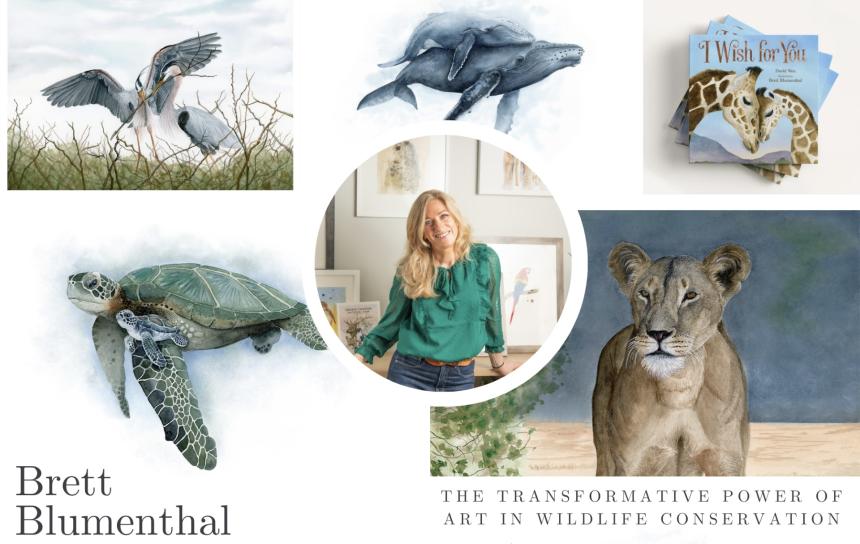In the News

Video
May 06, 2024
Cornell alumna Brett Blumenthal BArch ’96, MBA ’04, gave an inspiring talk on "The Transformative Power of Art in Wildlife Conservation," hosted by the Cornell University College of Veterinary Medicine, the Cornell K. Lisa Yang Center for Wildlife Health, and the Zoo and Wildlife Society.

Video
April 12, 2024
In this eCornell keynote presentation, Dr. Martin Gilbert, Helen Lee, and Laura Bernert from the Cornell K. Lisa Yang Center for Wildlife Health share their fieldwork experiences in Asia and help illustrate how the health of wildlife and our own health and well-being are inextricably linked.
Video
March 18, 2024
Johns Hopkins Science Diplomacy Coordinator and Cornell alum Isabel Jimenez, DVM '21, speaks with Professor Steve Osofsky about his career in conservation and how up-and-coming applied scientists can enhance their chances of translating their work into real change for good.

March 06, 2024
A recent study by Cornell University and the Wildlife Conservation Society highlights the importance of leaving bats undisturbed in their natural habitats. Bats have been identified as reservoirs for numerous viruses that can cross over to humans, including the SARS-CoV-2 virus responsible for COVID-19.

February 28, 2024
In February, Cornell University announced a $35 million gift to endow and name the Cornell K. Lisa Yang Center for Wildlife Health at the university’s College of Veterinary Medicine. Yang’s endowment will expand the center’s efforts to advance science into policy and action, train future wildlife health leaders, and provide opportunities for student experiential learning.

February 14, 2024
Cornell University’s College of Veterinary Medicine announced a gift of $35 million to support the Cornell Wildlife Health Center, which has been renamed to the Cornell K. Lisa Yang Center for Wildlife Health in recognition of the scale of commitment to planetary health from the donor, Lisa Yang.

January 30, 2024
A transformational gift from philanthropist and Cornell alumna K. Lisa Yang ’74 will endow and rename the Cornell Wildlife Health Center as the Cornell K. Lisa Yang Center for Wildlife Health at the College of Veterinary Medicine.

January 12, 2024
A new op-ed by Cornell's Dr. Steve Osofsky and World Wildlife Fund colleagues focuses on securing wildlife migration corridors in southern Africa.

December 12, 2023
Renowned wildlife veterinarian Dr. Markus Hofmeyr visited Cornell University to share his perspectives on sustainable conservation, focusing on challenges and successes around wildlife reintroduction and rewilding.

December 06, 2023
A massive die-off of the endangered species has been happening in sub-Saharan Africa since 2020. Until now, the culprit was unknown. A new study has shown the cause to be a bacterium not previously found in elephants of any species, called Bisgaard taxon 45, that causes septicemia.
